Sep 21, 2024
Sulochana Gawande
Sulochana Gawande, also known as Sulu, is an accomplished cancer researcher with a strong background in drug development within the pharmaceutical industry. Her book, “Revealing the Secrets of Cancer,” aims to educate the public about cancer, drawing from her early experiences at Tata Hospital and her commitment to supporting those affected by the disease. Gawande’s biweekly column in Maharashtra Times gained popularity, leading to the publication of her book in 2019, which she later translated into English during the pandemic for broader accessibility.
One Line Life Lessons from Sulochana
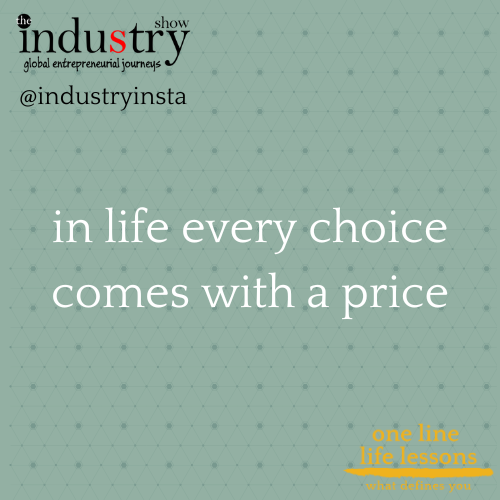
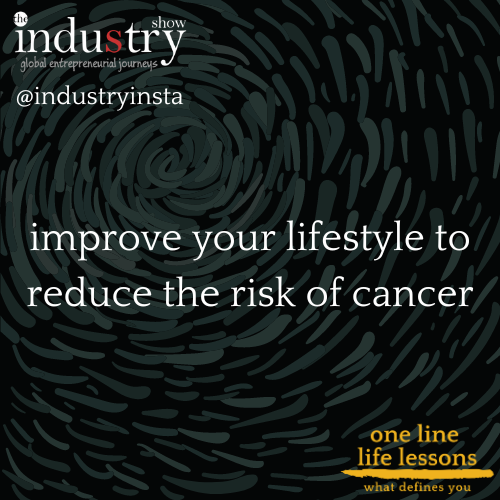
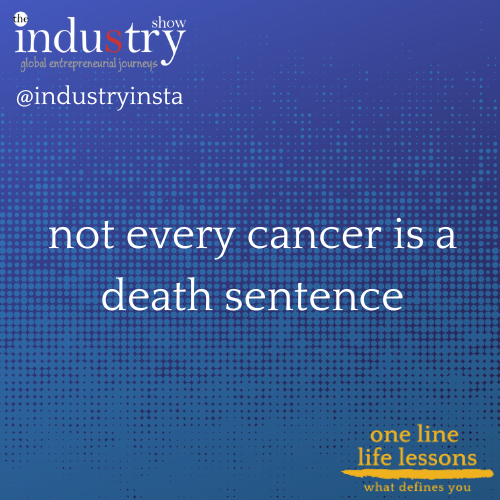
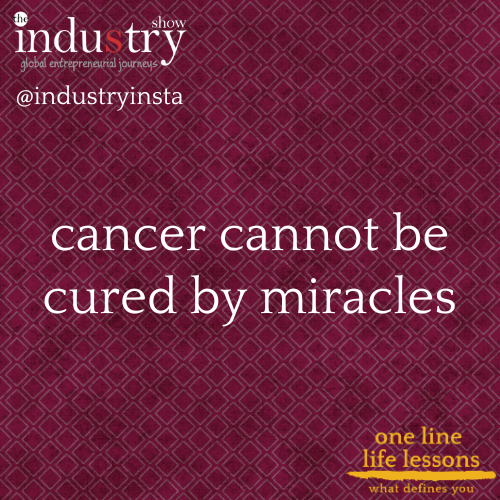
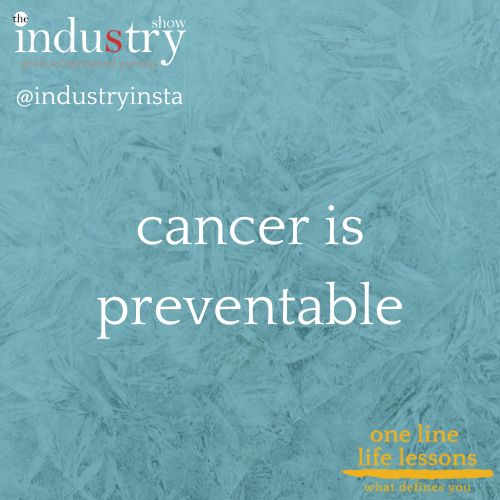
Episode Highlights
- 00:00 – Overview of Sulu’s background as a cancer researcher and her expertise in drug development within the pharmaceutical industry.
- 01:30 – Insight into her motivation for writing the book, influenced by her experiences at Tata Hospital and her desire to support cancer patients and their families.
- 03:00 – Discussion of her biweekly column in Maharashtra Times and its impact, leading to the publication of her book in 2019.
- 04:15 – Highlights the translation of her book into English during the pandemic to reach a broader audience.
- 05:30 – Gawande emphasizes the importance of making scientific ideas more accessible through visual and audio content.
- 06:45 – Advocates for education on cancer prevention starting from a young age, addressing the stigma around the disease.
- 08:00 – Discusses the links between obesity, processed foods, and increased cancer risk, stressing the need for public awareness.
- 09:30 – Gawande expresses her frustrations regarding limited resources and a lack of social media presence, which hinder her outreach efforts.
- 11:00 – Reflects on societal tendencies to seek immediate health fixes rather than embracing long-term lifestyle changes.
- 12:30 – Shares pivotal moments in her career, including overcoming setbacks from her initial path in medicine to her successful transition into pharmaceuticals.
- 14:00 – Emphasizes how personal values guide decision-making and the importance of responsibility in health choices.
- 15:30 – Gawande highlights that a significant percentage of cancers are preventable through lifestyle changes and education, advocating for consistent effort over miraculous cures.
- 17:00 – Encourages individuals to adopt proactive lifestyle changes to reduce cancer risk and improve overall health awareness.
- 18:30 – Reiterates the necessity of understanding cancer prevention and the role of education in promoting healthier lifestyles.
Show Transcript
Transcript - Full Episode
[00:00:00 – 00:00:08] Nitin Bajaj
Welcome to the industry show. I’m your host, Nitin Bajaj. And joining me today is Sulochana Gawande. Sulochana, welcome on the show.
[00:00:08 – 00:00:11] Sulochana Gawande
Thank you, Nitin. Very happy to be here.
[00:00:11 – 00:00:14] Nitin Bajaj
Pleasure is all mine. Let’s start with who is Sulochana?
[00:00:15 – 00:01:21] Sulochana Gawande
Let’s start with professional. Sulochana, I also go with short name, Sulu. I have done my master’s and PhD from Cancer Research Institute, and then I later did my postdoc at University of Pennsylvania and Michigan State University. So, officially, I’m doctor. Doctors doesn’t matter. I have worked for last 25 years in pharma industry, and almost all not almost. All of this work has been on developing drugs for cancer. So I have that experience in addition to my academic background. On personal level, I think I’m a teacher at heart, And I also like to tell stories. While working in the labs and later in the offices of pharma, I have always cared about the human face of cancer. For me, it’s not just a profession, but also the people who are ravaged by it, who are suffering from it.
[00:01:22 – 00:01:41] Nitin Bajaj
Thank you for sharing that. And you’ve had a an illustrious and phenomenal career. I’m curious to understand you shared a little hint of that, but you recently became an author and, released this book called Revealing the Secrets of Cancer.
How many people would retire and travel and do many other things or just take time off and play with their grandchildren. Why write this book instead?
[00:01:54 – 00:02:37] Sulochana Gawande
As I said, I’m a storyteller. . When I was growing up, I lived in part of Mumbai, which was, socio economically quite backward. So around my apartment building, there were many shanties and shawls where people worked in mails or did work as maids. And I took a lot of pleasure in explaining things to them that they couldn’t understand. . Just felt happy, felt that because I have access to education and they don’t, it was good. And and it didn’t the background where we come from, we always feel giving nana knowledge is the best thing one can do in life.
[00:02:37 – 00:02:38] Nitin Bajaj
.
[00:02:38 – 00:02:45] Sulochana Gawande
Again, I come from Maharashtra where Naneswar was the first person who brought the most complex knowledge from Bhagavad Gita down to common people. Right? So I always enjoy teaching, explaining things, making it simple. But then later, I went for my research, my career. I came to the United States. Life here is very challenging.
I had a daughter, so it was mostly just work taking care of family. But I never forgot my early days when I was very young. So I when I went to Tata Hospital to do my research, I was only 19. And I saw a lot of things around me that had profound effect on me. These were patients who came from all parts of India to get treated. There wasn’t much treatment in 1980s..
So there was the fear. There was the helplessness of poverty. There was the ignorance, and all that stayed with me. I always said to myself, maybe one day I can do something to help these people. The youthful optimism, you might call it, and that wasn’t possible. . And when you read my book, there is a chapter on it where I question myself as to did I really do anything in my life. . But, anyway, so going forward as, I became established and, there was no more financial anxiety for us, and then my daughter got settled. I thought it was a time to do something. . And my first attempt was not for people here, but the people where I came from. As I said, the poor people from my community around my house. So my I started writing in a newspaper called Maharashtra Times.
It’s a newspaper in Marathi in Mumbai, and it has a readership of about 4,000,000. A huge readership. And I started writing a biweekly column. And imagine this that I’m taking science from English to Marathi to very simple Marathi. So it was lot of fun doing that. If I don’t get Alzheimer’s, that may be one of the reasons because my brain had to do so much exercise there. But I did that. I wrote that biweekly column, which became very popular. Actually, I started writing about people first because I had encountered lot of people who lived and died with cancer, showing lot of courage, wisdom. So within a month or so, I started getting, emails saying, please tell us about the disease. So then I started very systematically and started writing about the disease from the very beginning, and I will tell you more about it later. But so that column became very popular. And then Tata Hospital, in Tata Hospital itself, all those articles were compiled and published as a book because you can understand the newspaper cuttings get lost. So that was in I start wrote the column in 2016. The book was in 2019, then came the pandemic. And lot of my friends who are doctors or even other educated people, they started saying our children don’t treat Marathi. . And your book is so good. I think you should make translate it into English. So that was my project during the pandemic. I translated the book to English, also updated it, and that’s how you have the book there today.
[00:06:19 – 00:06:25] Nitin Bajaj
Such an inspiring story. I wanna make a comment there. Grew up reading MATA as we used to call.
[00:06:26 – 00:07:20] Nitin Bajaj
Right? Okay. And has a huge followership to the date. And, I think it’s only gotten more popular, over the years. So first off, thank you for your service to the community for bringing that extremely deep scientific knowledge that scares a lot of the people and bringing that to the common person who can not only now read it, but also understand it. And it makes it relatable. And what’s relatable to me is believable because otherwise, it’s just considered to be some random thing, some propaganda. And I can imagine how that translates into the community that does not have good access to education. So huge service. Thank you for raising that information, bringing it to millions of people that otherwise would not have access to it.
[00:07:20 – 00:07:48] Sulochana Gawande
Yep. Yep. One thing I believed in just when when I I used to do a lot of teaching even in my profession as a scientist. And one thing I believed in is that anybody can make simple complicated. When you can’t we don’t understand something, make it complicated and use big words. But making something complicated, simple, awesomely simple, that takes creativity. And that’s why I said I enjoyed that challenge. Go ahead, please.
[00:07:48 – 00:09:25] Nitin Bajaj
No. I agree with you. It’s often said, and I’m a big believer of this, is simple is not easy. Right? To make something simple takes an extreme amount of effort. And, again, thank you for doing what you’ve done. And then you flipped it around and you brought this in English. So a lot of the newer generation that is disconnected and also people that are not just in India, bringing that to them through this newer version and and released book in English. Again, thank you for doing that. I’m curious to now know this is this information, if I were to call it that, whether it was in terms of columns in Mata or in Marathi in general or now in English as a book. Give us a sense of the size and scale. And also, it’s this information is just not restricted to the book. You’ve been traveling. You’ve been doing a lot of seminars, sessions, workshops, and also discussions like these to bring this information to as many people that can have access to it. Give us a sense of how many people have benefited or just even learned something new about this disease that’s considered to be a one and done. Right? Once you get it, it’s there’s nothing you can do about it. But your book and you talk about how you can prevent it, how it can be something that doesn’t even come to you. So I’d love to talk about the big word impact of the work you’ve done so far.
[00:09:27 – 00:09:44] Sulochana Gawande
So I do not have any statistics. Remember, I’m a scientist, so I don’t like to talk without statistics. I have sold a fair number of books. My Marathi, version of the book, which is right here, is sold out right now, so people can’t get it. I’m asking the publisher to
Do the second run. English books have done not phenomenal run. They have done okay. As you correctly said, people listen more to the kind of podcast Yes. And these kind of programs. The the visual, audio visual is more powerful now than reading. For example, to give you an idea, there is a very popular TV program in Marathi called Mazakatta, means my call now. . Okay? And to give you an idea, people like Amir Khan and Madhuri Dixit and Asha Boselind, major politicians have been there on it. I don’t know who recommended my name, but I was invited. And as of today, there have been more than 130,000 views. And it’s a long program, 90 minutes. So I look at it and I wonder, and and that tells me that people want to know about it. . See, the problem is, Nitin, all my life when I was working on cancer, people would come to me with questions.
But there is so much dogma, stigma, so much shame associated with this word cancer, which is unfortunate. And that’s one of the reasons why I wrote this book that they would they will they will come and they will be these whispers and they will be this fear. That was one part of it. The second part is they also come to you when they’re very anxious.
And that’s why they are angry and impatient. Okay? And I try to tell people which some of the basic facts I will tell you. So on an average, cancer takes more than 15 years to develop. So going from that one Sulu, progressing into a lump and then manifesting itself into different parts of the body, it’s a long process. Okay? And if you try to understand and address it only when you are you have that diagnosis, it’s already too late, if you ask me. True. Okay? So that’s what happens, and that’s why people are not ready to look at the book or read about it ahead of time. While if I go on medium like this, and that’s why I’m thankful to you, they at least try to understand. And my main, argument is to all these people is the best treatment for cancer is prevention. Yes. You have to be proactive and try to reduce your risk by making changes to your lifestyle. And that has to happen when people are much younger.
[00:12:24 – 00:12:24] Nitin Bajaj
Yeah.
[00:12:24 – 00:12:39] Sulochana Gawande
Not when they’re past 60, 60. And most people would come and tell me when I I say I have written a book about cancer. I would like you to know about cancer. They’re like, go talk to the senior citizens. You know what I’m saying. Right?
[00:12:40 – 00:13:44] Nitin Bajaj
Yeah. It’s it’s a fact, but it’s also unfortunate. Right? And I love how you put it. The best solution or treatment for cancer is prevention. And I also agree that our bodies tend to be lagging indicators of our actions, whether it’s working out, building muscle, that will help you immediately. It’ll show you what that does. But the real benefits come 20 years from now when you’re able to demonstrate, have good posture, not have arthritis. All of those things. Same, I would imagine, goes for cancer and and many such other diseases. I started to address my next question, which is you have this amazing experience. You’ve put all of this expertise and you’re doing this service to our community at large by helping us not only understand but prevent something that has become, I would say, the top two causes of death for humanity. What is the biggest challenge you are facing?
[00:13:45 – 00:14:08] Sulochana Gawande
As you correctly said, I already started addressing it. And that is to get into get this book or this topic into people’s hands or heads. They have to start thinking about it when they’re in their early thirties. Okay? Today, we see there is such a big epidemic of obesity.
Now you will be surprised to hear that in neck it’s already happening that obesity as a cause of cancer is going to overtake smoking. Okay? And most people don’t even understand why obesity causes cancer. Then there is germ food, the processed food, which is giving rise to pancre colorectal cancer.
[00:14:31 – 00:14:32] Nitin Bajaj
Yes.
[00:14:32 – 00:14:55] Sulochana Gawande
There is increase in some really bad cancer like pancreatic cancer. We don’t know why. So that is another thing I keep doing, and that’s why I want people to read this book, understand, is most people feel cancer is a curse. It’s a destiny. Because they do not see the cause and effect as we see with many other diseases. Right?
[00:14:55 – 00:14:55] Nitin Bajaj
Yes.
[00:14:55 – 00:16:10] Sulochana Gawande
It’s it’s very mysterious if you think about it, and mystery scares us. Yeah. We we do not know how to address it. So I want people to get for example, let me go back a little bit. At the publishing of my English book in India, there was one woman of my age who is also a grandmother, and she said this book gave me the ammunition to tell my children and grandchildren why do they need to eat properly. Okay? And so these are the things my biggest challenge is that once people read the book, they are so happy about it. They thank me. They learn from it. Every single review that I read on Amazon, I was surprised how much they liked it. But how do you get them to read it? How do you get them to think about it? That is one challenge. The second challenge I have, Nitin, is I do not have the marketing machinery of any big publishing company behind me. This is just me. I have tried from my side whatever I can do. Like, in in India, I published the book only for 200 rupees by picking up quite a lot of cost. But even then, I don’t know how I I’m I’m a scientist. I’m not a marketeer.
[00:16:11 – 00:16:11] Nitin Bajaj
Right.
[00:16:11 – 00:16:34] Sulochana Gawande
And good people like you, I never thought I will be invited to this show. But then there are people who recognize the value of this work, which is helpful, but I still lack that marketing force behind me. 3rd problem is, for me, challenge is I never went on social media or anything like that in my career. I think that may be the right path to take this topic forward because people’s focus, their attention span has become so less now that I may have to break this into smaller pieces
And present it. But ultimate goal and that is where the challenge is. Ultimate goal is make people think about their lifestyle. And if they get cancer, then give them adequate knowledge so that they can face it correctly. Because not all cancers are death sentences. . There are a lot of cancers which can be cured. I think today, we have more than 15,000,000 cancer survivors in United States alone. Right? So that’s my challenge.
[00:17:20 – 00:18:03] Nitin Bajaj
True. And, you know, what you shared makes me think about this in terms of a Nitin, which is people may not get the value of a vitamin, but they know it’s good for them. But they just really continue to ignore it. But if they have a pain, the pain killer is something they’ll go find. Right? And this notion of and we say this in the online or the social media world is it’s much harder to sell a vitamin than it is to sell a pain killer. With a pain killer, you just have to make people aware that it exists and they’ll come buy it. Whereas with vitamin, you have to label it, make it look fancy, pretty, sell people on the 15 different
[00:18:04 – 00:18:07] Sulochana Gawande
so true. I never thought about it. That’s so true. Yeah.
[00:18:07 – 00:18:35] Nitin Bajaj
So the minute somebody has been given a diagnosis that they have cancer, they’ll look for everything that is available under the planet. But to say that, oh, you could prevent this? As you said, it’s an unknown. It’s a mystery, and they don’t want to find out. Again, happy to help in every which way to spread the message, spread the word so we can do the best thing we can with something like cancer is to prevent it.
[00:18:35 – 00:18:44] Sulochana Gawande
Yes. I want to add one more thing to what you said. You said some few very nice things. Other thing is lifestyle changes, Nitin, are longer duration.
[00:18:44 – 00:18:44] Nitin Bajaj
Yes.
[00:18:44 – 00:19:04] Sulochana Gawande
And these days people want something quick. Yeah. It’s like even my maid in India used to say, doctor, give me one injection. They just believe that injection will make her good the next day. And and and you know what? Medical science has advanced so much that may for many of the diseases, we do have quick cures
[00:19:05 – 00:19:45] Sulochana Gawande
Or fixes. It’s it’s not as bad. With cancer, the see, the even the prevention for things like cholera or other infectious diseases was much easy. Right? That’s not so with cancer. Cancer is so hidden, so inside us, and such of what we say as it’s a it’s an enemy that can fool us very easily. And that’s why people like, it’s not okay. Don’t eat red meat for 1 week. . Okay? Or do exercise for 2 weeks. It’s not like I’m saying you have to do it on an ongoing basis, and it’s not very easily palatable to people.
[00:19:46 – 00:19:54] Nitin Bajaj
True. I agree. Now on the flip side of challenges come opportunities, what’s the one that you’re most excited about?
[00:19:55 – 00:20:46] Sulochana Gawande
Oh, being here has been a great opportunity. No. I’m, as you correctly said, I’m working with a lot of people. Recently, I was in India, and I did 3 different podcasts. One of them was in Hindi. My first one, that person is a movie actor, and, again, he came found me. So I’m looking at this. I don’t see any big huge opportunity. I’m doing baby steps. Where I can’t, I go forward, I try to do something. It’s not about selling book again. It’s about taking the message. But, ultimately, what happens, as you will appreciate, is everything that I give in the book cannot be fit fitted in a 40 minute podcast. And so I do hope at some point people will go and try to understand more. But that I am looking for these small opportunities.
[00:20:47 – 00:21:14] Nitin Bajaj
Yeah. Makes a lot of sense. Now as we look forward, I’d love to take a moment and, look in the rearview mirror, ask you to share 2 moments in your life and career where in one case, something did not work out as you had expected. There was maybe failure, some lessons, and another experience where things exceeded your own expectations and, became a success beyond what you had imagined.
[00:21:16 – 00:21:20] Sulochana Gawande
The biggest failure in my first of all, I’m an eternal optimist.
[00:21:20 – 00:21:20] Nitin Bajaj
Yes.
[00:21:20 – 00:23:46] Sulochana Gawande
I usually you will see my optimism and my joyful nature even in a book on cancer, and many people have commented about that positivity. But the biggest setback in my life came when I missed my admission to medical school by just one point. Just one point. And that time, there were no private medical schools in Mumbai, plus it was very expensive. For the long time, I didn’t know what I would do with my life. Long time means maybe couple of years when I did my BSC, the graduate degree. And then I went to this Cancer Research Institute, and I persevered, and I studied, and I kept on and on. And meanwhile, as I told you, I met all these patients and everybody, and I realized I can serve these patients through some other means also. . It took many more years. Something I could have done at the age of 25. . I had to go past 60 to do the same thing. But what I feel is I found another path to go to my goal of helping patients. So that’s a failure that I don’t regret anymore. I think I’m okay. And about you said something that exceeded your so I will tell you something. How I came to pharma was a interesting thing. My daughter asked me if we are very poor. . Because she didn’t want to go to day care after school. She wanted to come home. We we were scientists. We were not really making much money, but I decided to give up that job, whatever I had, which was good by that my standard at that time. And I said, okay. It’s okay if we have less money. We are in a foreign country. More important to give my daughter the correct ideas about life. You can’t just speak about principles. You have to add them. To cut the long story short, I put in an application for the contractor job in Eli Lilly, not knowing what clinical research is. 3 people fought over me and took me, and I did for 2 years only temporary job because I wanted to come home at 2 o’clock for my daughter. But that career just exploded. Eli Lilly gave me lot of opportunities, and I kept going upwards. And I realized that I did have a lot of potential. So I think that went far beyond my expectation.
[00:23:48 – 00:23:56] Nitin Bajaj
That’s such a beautiful story because you made the right decision for you, for your daughter, and the rest just worked out.
[00:23:56 – 00:24:05] Sulochana Gawande
Absolutely. Absolutely. I always tell people, listen to your heart Yes. And do the right thing as you correctly said. Do the right thing and rest will follow.
[00:24:06 – 00:24:12] Nitin Bajaj
That’s amazing. Now I wanna pause and ask you a a different question. What do you do for fun?
[00:24:13 – 00:24:50] Sulochana Gawande
Oh, I traveled a lot. . Enjoy traveling. Even before I traveled for work, I read books. I still like to read a lot. Not science books. I’ll you won’t believe it, but I really enjoy murder mysteries. It started with Agatha Christie. I like good humor, books also, but, Nitin, you know what? I used to love PG Woodhouse and that kind of British humor. I don’t get those books anymore. Human has changed a lot. But I like so I like reading, travel. I spend time with my grandson. Then it’s just being by myself is also fun.
[00:24:50 – 00:24:50] Nitin Bajaj
True.
[00:24:50 – 00:24:58] Sulochana Gawande
Sometimes after running for so many years, just having the relaxation to not to do anything Yes. That’s good.
[00:24:58 – 00:25:20] Nitin Bajaj
Yeah. I love how you start appreciating the silence, the lack of motion, the lack of just that stillness that brings so much joy. Yeah. Yeah. Now onto my favorite part of the show. We call this the one nine life lessons. I’d love for you to share a few of your life lessons with us.
[00:25:21 – 00:26:25] Sulochana Gawande
So I have few, and I will tell you a couple of personal and couple for the cancer patients. So I’m I as I said, I’m an eternal optimist, and I I like to take responsibility. So I say that in life, there are choices, but remember, every choice has a price. And you are a lucky person if you get that choice. Right? Not everybody can get it. When it comes to when it comes to cancer, I want people my one liner will be improve your lifestyle to reduce your risk of cancer. I think it’s very important. Not every cancer is a death sentence. Take correct treatment. One very important one is cancer cannot be cured by miracles. I see a lot of people going and trying to do something that they shouldn’t be doing. They lose precious money and time, both. Right? So these are the few that I have.
[00:26:26 – 00:26:40] Nitin Bajaj
Thank you so much for sharing that. And I think the one you mentioned about people hoping and praying that miracles will solve for this mysterious disease, Yeah. That’s not going to happen, unfortunately. Yeah.
[00:26:40 – 00:27:16] Sulochana Gawande
No. Cancer and cancer is preventable. That’s one of the 70% cancer is preventable, Nitin. Where do we get those odds? You tell me. But it takes work. It’s not something it’s it’s not like vaccination that you get one jab and you are safe for for life. It takes work. But it is preventable, and people have to understand that and work on it. So I hope if nothing else, that message goes through to your very renowned and very important podcast. So that’s one thing I want people to take from this whole chat.
[00:27:17 – 00:27:50] Nitin Bajaj
I agree. Doctor Sulochana Gawande, thank you so much for being on the show. Again, thank you for the service you’re continuing to do for us, for humanity in preventing one of the most disastrous diseases that I know of. Really appreciate all your work, your service, and, many more successes to come your way. And would love to bring you back on and talk about more of these things and getting the message across to even more people. Really appreciate it.
[00:27:51 – 00:27:55] Sulochana Gawande
Thank you so much. I I enjoyed being here. I enjoyed talking to you.



